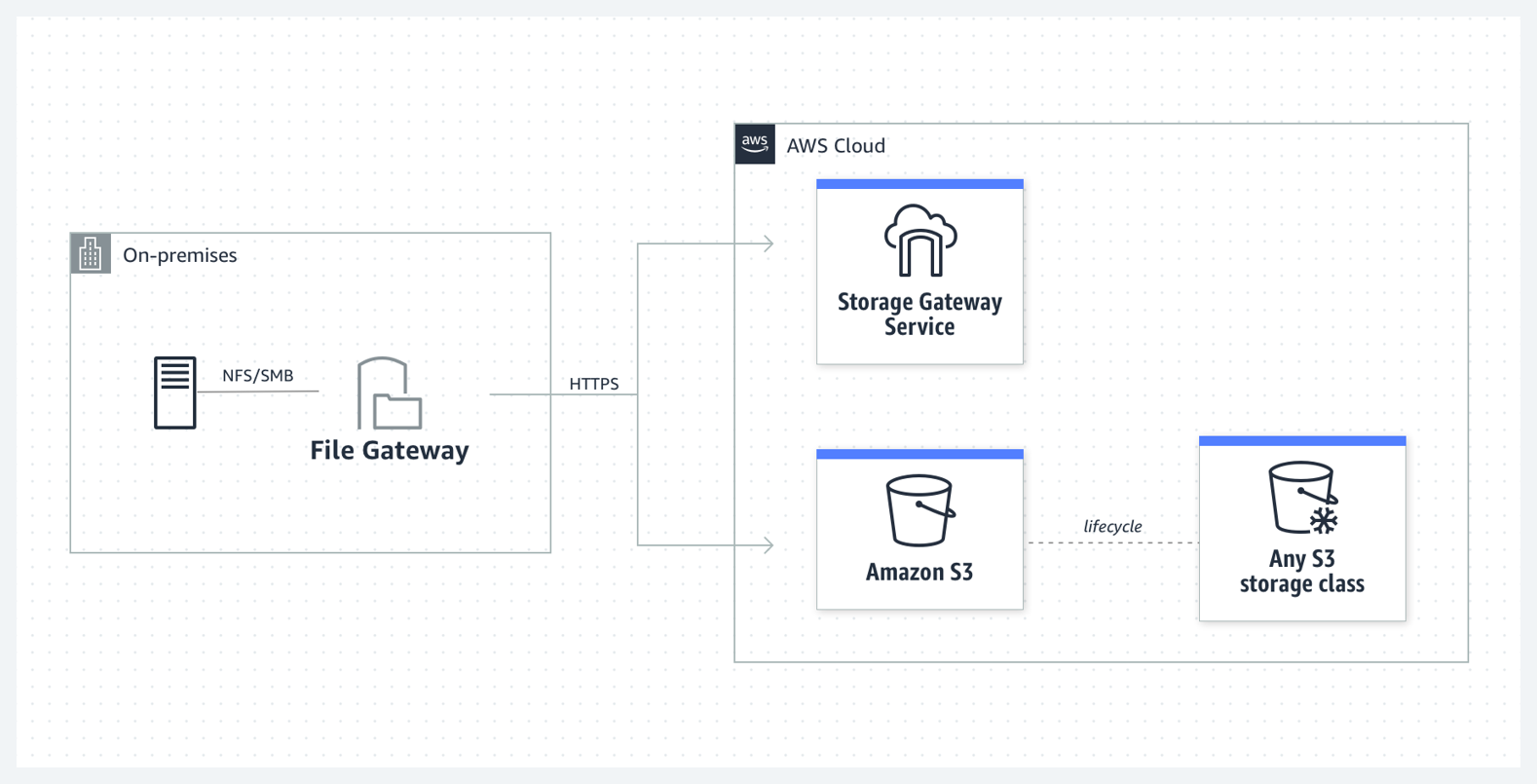Overview
Nearly all enterprises, regardless of industry, have to store files, whether they are backups, media content, or files generated by specialized industry applications. Managing and scaling on-premises infrastructure to provide online storage and distribution of such backup or content files is often burdensome and costly, requiring expensive hardware refreshes, data center expansion, and software licensing. These large file data repositories can be siloed in specialized file servers or backup systems, limiting access for file sharing, analytics, or media processing.
You can choose from two file gateway types for your latency-sensitive applications and workloads that require local caching and file protocol access. Amazon S3 File Gateway enables you to store file data as objects in Amazon S3 cloud storage for data lakes, backups, and ML workflows. For user or team file shares, and file-based application migrations, Amazon FSx File Gateway provides low-latency, on-premises access to fully managed file shares in Amazon FSx for Windows File Server.

How it works
Amazon S3 File Gateway
S3 File Gateway

Amazon FSx File Gateway
FSx File Gateway

Benefits
Kelloggs
Kellogg Company experienced a 90% reduction in costs in software and infrastructure by using File Gateway for their backups. There was a substantial cost avoidance for Kellogg Company since they did not need to pay any upfront costs. They also were able to reduce their resources by 25% enabling them to downsize some of their instances.

Celgene
Celgene faced a big challenge integrating their wet labs with the computational aspect of their research. Celgene uses Storage Gateway and DataSync to synchronize their on-premises wet labs with AWS Storage. By having Celgene's scientists immediately be able to save their files directly to the cloud, they can go on with the next experiment without having to wait for the transfer times, and they never run out of space.
